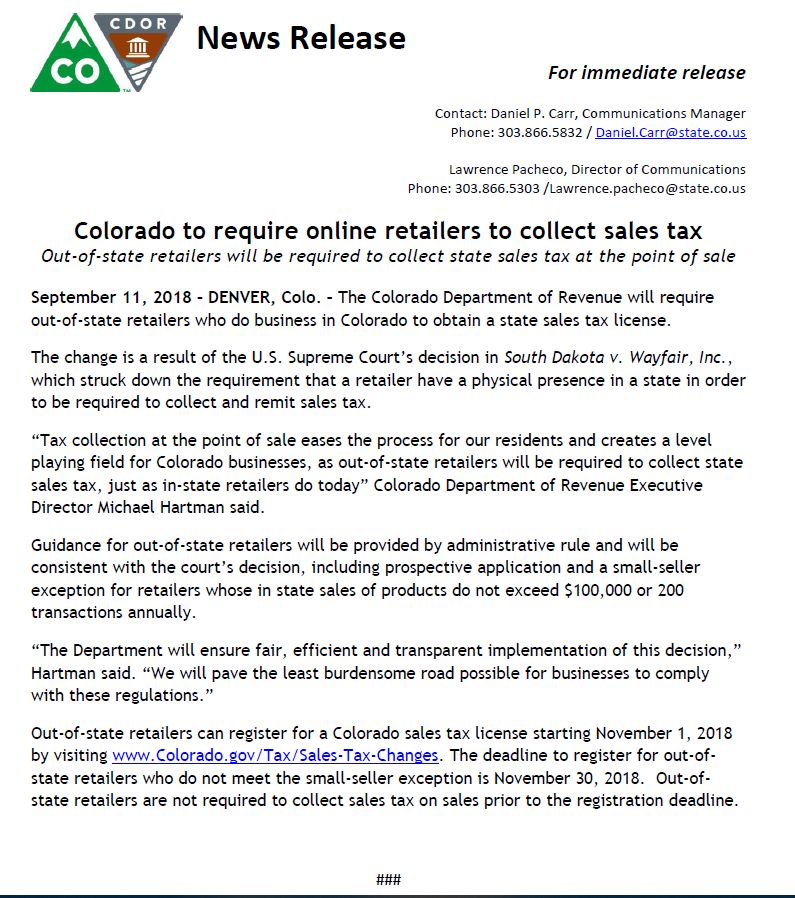The Colorado Department of Revenue has announced (news release image below) that it will require by regulation collection of sales taxA tax is a mandatory payment or charge collected by local, state, and national governments from individuals or businesses to cover the costs of general government services, goods, and activities. by online sellers starting November 1, 2018. The department says the regulation is forthcoming but will adhere to a $100,000 or 200-transaction limit as in other states and not collect retroactively.
That’s nice, but what the DOR doesn’t mention is that Colorado isn’t ready. There’s a reason the state is colored bloodred on our map from our report showing which states were ready for the post-Wayfair leap into online sales taxA sales tax is levied on retail sales of goods and services and, ideally, should apply to all final consumption with few exemptions. Many governments exempt goods like groceries; base broadening, such as including groceries, could keep rates lower. A sales tax should exempt business-to-business transactions which, when taxed, cause tax pyramiding. collection. Colorado’s big problem is that it allows its 349 county, city, and district local sales tax jurisdictions autonomy in administering, collecting, and auditA tax audit is when the Internal Revenue Service (IRS) conducts a formal investigation of financial information to verify an individual or corporation has accurately reported and paid their taxes. Selection can be at random, or due to unusual deductions or income reported on a tax return. ing. Filing is very cumbersome as a result, with the state and local tax baseThe tax base is the total amount of income, property, assets, consumption, transactions, or other economic activity subject to taxation by a tax authority. A narrow tax base is non-neutral and inefficient. A broad tax base reduces tax administration costs and allows more revenue to be raised at lower rates. not necessarily adding up on a given transaction.
The news release wasn’t clear on whether online sellers will have to collect state and local sales taxes, or just state taxes. If it’s state and local, which in Colorado means separate tax bases, that goes beyond what Justice Anthony Kennedy wrote was permissible in the U.S. Supreme Court’s Wayfair decision. If Colorado only requires collection of the state sales tax, that is more defensible legally.
We’ll keep monitoring and update as we hear more.

Share